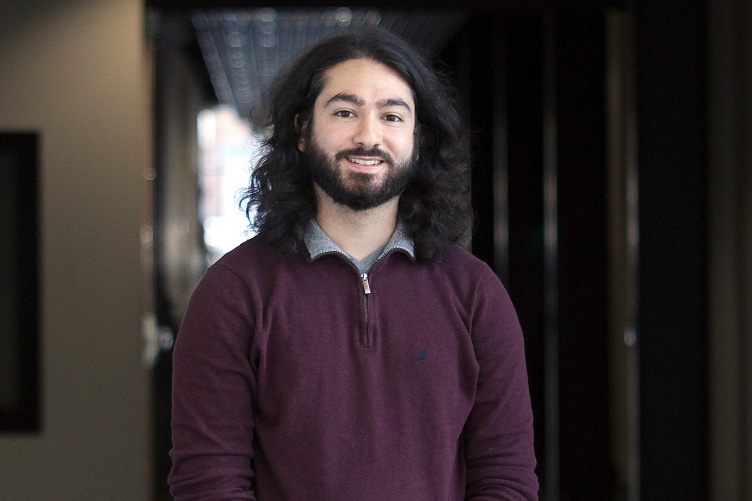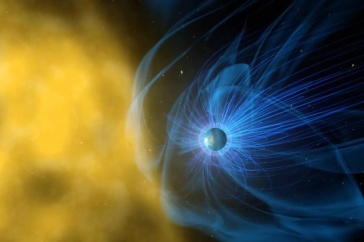
Steven Arias ‘16, a doctoral candidate in the department of physics and astronomy, has become the first UNH student to receive an award from the Department of Energy’s Office of Science Graduate Student Research (SCGSR) program.
The goal of SCGSR is to prepare graduate students for science, technology, engineering or mathematics careers that are critically important to the DOE Office of Science mission by providing graduate thesis research opportunities through extended residency at DOE national laboratories.
“The award is a good fit for what I want to do later on in my career,” says Arias. “I’ve expressed interest in looking for jobs at a national lab setting, so this will be a good experience to see if this is a career path I would enjoy.”
As part of the program, Arias will work at the Center for Functional Nanomaterials at Brookhaven National Laboratory in Upton, New York for one year beginning in November. The award provides support for inbound and outbound travel to the laboratory, and a monthly stipend of up to $3,000 for general living expenses while at the host DOE laboratory during the award period.
Arias’s interest in working at Brookhaven was hatched by his desire to simplify research that utilizes scanning probe techniques to better understand surface chemistry – it can take days for even expert users to optimize parameters before useful data can be mined. Arias hopes to utilize machine learning and artificial intelligence (AI) to automate the image optimization process for these microscopes.
“Automating complex optimization procedures using machine learning would save users time and effort, says Arias, who will collaborate with Percy Zahl, senior scientific associate at Brookhaven. “This would also make these techniques a lot easier to use and allow a non-expert user to get high quality data.”
At UNH, Arias has worked under assistant professor Shawna Hollen and associate professor Jiadong Zang. He first studied how molecules attach to surfaces using advanced microscopy techniques that reveal atomic-scale details, specifically focusing on reactions that remove sulfur from petroleum products for ultra-clean fuels.
“Steven found an opportunity to make a significant difference for the whole imaging community,” says Hollen. “He will bring his independent computational pursuits and experimental expertise to the project at Brookhaven.”
Arias, who is expected to finish his Ph.D. in December of 2022, also completed his bachelor’s degree in physics at UNH in 2016. He says the best part of his academic experience is the support he’s received from the people at UNH.
“My advisors and all the faculty and staff members in the physics department provide constant support,” says Arias, whose family lives in Colombia. “Sometimes it’s hard to be so far away from home, but all the friends I’ve made in the department act like a second family and provide constant support.”
-
Written By:
Brooks Payette | College of Engineering and Physical Sciences
















































